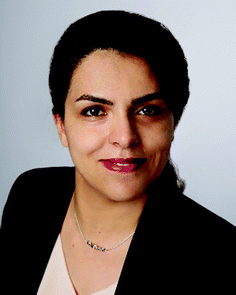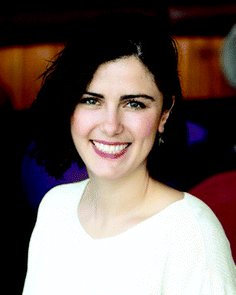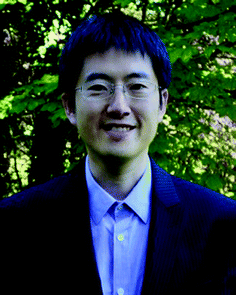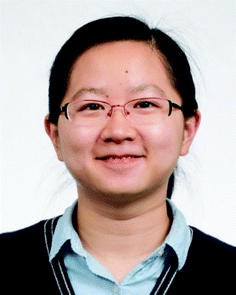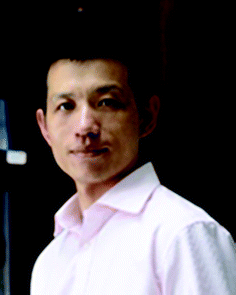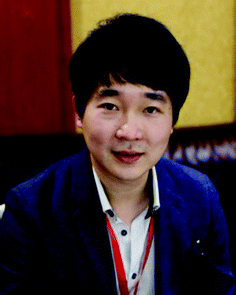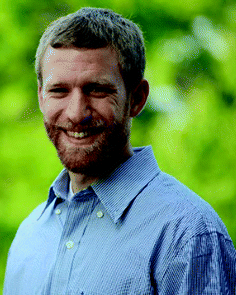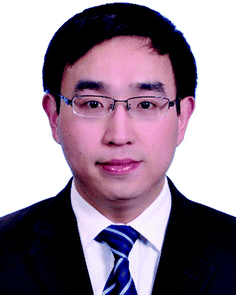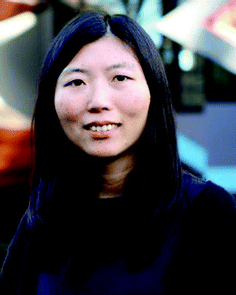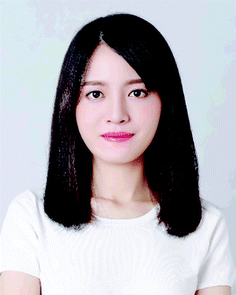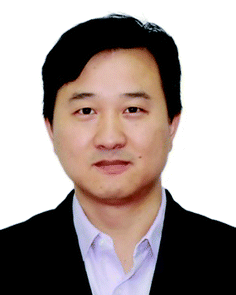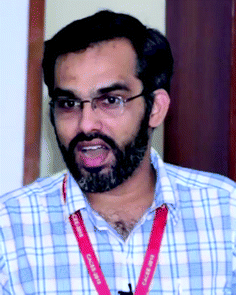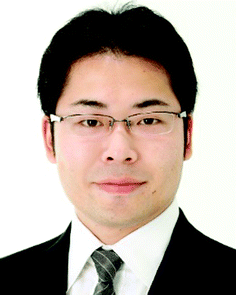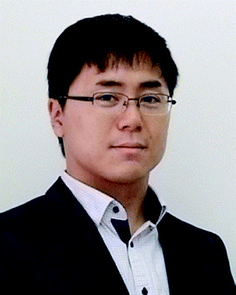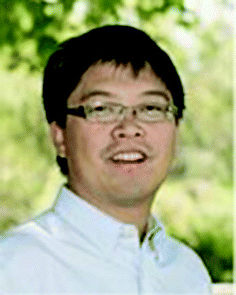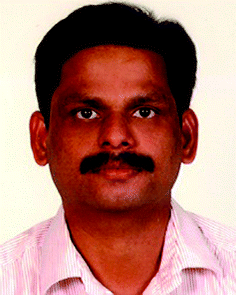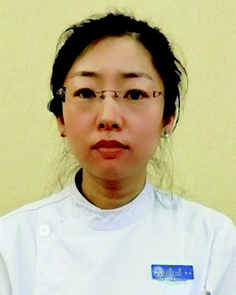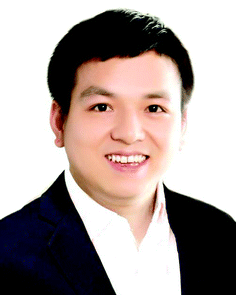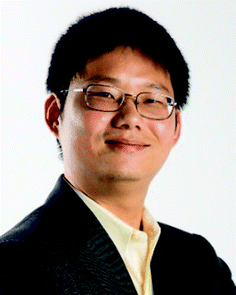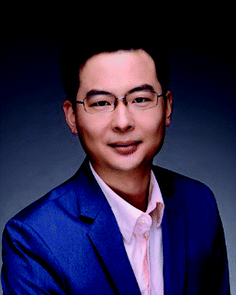Meet the Community Board of Materials Chemistry Frontiers
The Community Board at Materials Chemistry Frontiers is made up of up-and-coming researchers who are at the early stage of their independent career. This board will provide a channel for communication between the materials emerging investigators community and the editorial office and Editorial Board. The board members will provide essential feedback and advice on the perception of the journal in their community, as well as being ambassadors for the journal. We are pleased to introduce to you the first members of the Materials Chemistry Frontiers Community Board.Tayebeh Ameri
Tayebeh Ameri is a Lecturer in the Department of Chemistry, Chair of Physical Chemistry, at the University of Munich (LMU). After obtaining her masters degree in Solid State Physics at Ferdowsi University of Mashhad in Iran, she joined Konarka GmbH Austria and received her PhD in Engineering Sciences from Johannes Kepler University Linz in 2010. Afterwards, she worked as postdoctoral researcher and group leader in the Department of Material Science and Engineering at Friedrich Alexander University Erlangen-Nürnberg (FAU) and carried out her Habilitation at FAU from 2013 till 2017. Her main research interests include investigation and development of organic and hybrid optoelectronic devices with a focus on energy applications. She has published over 100 peer-reviewed original and review papers in reputed international journals.
Derya Baran is Assistant Professor in the Department of Materials Science and Engineering at King Abdullah University of Science and Technology (KAUST), Saudi Arabia. Originally from Turkey, she received her PhD in Materials Science and Engineering from Friedrich-Alexander Erlangen-Nürnberg University, Germany in 2014. She then received the Helmholtz Association postdoc grant and pursued joint post-doctoral studies at Jülich Research Center, Germany and Imperial Collage London, UK. Since January 2017, she is an assistant professor at KAUST. Her research group (OMEGALAB) focuses on the engineering smart materials for organic electronic applications; in particular solar cells and thermoelectrics.
Changle Chen is a Professor in the Department of Polymer Science and Engineering at the University of Science and Technology in China. He obtained his BS degree from University of Science and Technology of China, and PhD from the University of Chicago, USA. After postdoctoral studies at Northwestern University and some time at Celanese Corporation, he started his independent career as a professor at USTC in 2013. His current research focuses on development of new catalysts and new strategies for olefin polymerization and copolymerization. His notable awards include American Chemical Society DIC Young Investigator Award, IUPAC Prizes-Honorable Mention, National 1000 Young Talents Plan, Chinese Chemical Society Award for Outstanding Young Chemist, the Society of Polymer Science Japan International Leading Young Scientist and NSFC Excellent Young Scholar Fellowship.
Sijie Chen is an Assistant Professor at Ming Wai Lau Centre for Reparative Medicine, KI, Hong Kong. She obtained her PhD from Hong Kong University of Science and Technology in 2013. She received the Endeavour fellowship and worked as an Endeavour Fellow at University of Melbourne and a visiting scientist at Walter and Eliza Hall Institute of Medical Research (WEHI) in 2015. Thereafter, she joined Karolinksa Institutet (KI) in Sweden as a postdoctoral fellow. She was recruited as an Assistant Professor at Ming Wai Lau Centre for Reparative Medicine, KI, Hong Kong in 2017. Her current research interests focus on the development of new luminescent materials and techniques for biological research.
Xiaoyu Cao is a Professor at the Department of Chemistry at Xiamen University, China. He received his BS from Peking University, China and PhD from Université Louis Pasteur, Strasbourg, France, supervised by Nobel laureate Professor Jean-Marie Lehn. From 2009 to 2011, he was awarded a Marie-Curie IntraEuropean Fellowship to work with Prof. E. W. (Bert) Meijer at Eindhoven University of Technology, the Netherlands. He started his independent career as an associate professor in 2011 and became a professor in 2017 at Xiamen University. His research interests focus on molecular assembly, catassembly, supramolecular chemistry and organic electronics.
Dan Ding is a Professor at the College of Life Sciences at Nanjing University, China. He received his PhD from Department of Polymer Science and Engineering in Nanjing University in 2010. After postdoctoral research at National University of Singapore, he joined Nankai University, where he is currently a professor in State Key Laboratory of Medicinal Chemical Biology, Key Laboratory of Bioactive Materials, Ministry of Education, and College of Life Sciences. He also conducted his work in the Hong Kong University of Science and Technology as a visiting scholar. His current research focuses on the design and synthesis of smart/functional molecular imaging probes and exploration of their biomedical applications.
Kenneth Graham is an Assistant Professor in the Department of Chemistry at the University of Kentucky, USA. He earned a BS from UNC Chapel Hill, a PhD from the University of Florida under the supervision of Prof. John Reynolds, and worked as a SABIC post-doctoral fellow with Prof. Mike McGehee at Stanford University and Prof. Aram Amassian at KAUST. He began his independent career at the University of Kentucky in 2014 and received a DOE CAREER award in 2017. His current research interests center on using interfacial chemistries to manipulate optical and electronic properties of organic metal halide perovskites, applying photoelectron spectroscopies to investigate material and interface energetics, and understanding how these energetics influence organic metal halide perovskite based photovoltaics and organic thermoelectric materials.
Xinggui Gu is a Professor at Beijing University of Chemical Technology, China. He received his BS from University of Science and Technology of China, before coming to Institute of Chemistry Chinese Academy of Sciences for a PhD. After obtaining his PhD in 2013, he continued as a postdoctoral fellowship in Hong Kong University of Science and Technology. He has published over 40 peer-reviewed papers. His research interests focus on designing multifunctional luminescent materials (especially AIEgens), investigating the photophysical properties, and extending their applications in optoelectronics and biomedicine.
Yuning Hong is a Senior Lecturer in Chemistry at La Trobe University in Melbourne, Australia. She obtained her PhD from Hong Kong University of Science and Technology (HKUST) in Prof. Ben Zhong Tang's group, followed by postdoctoral training in Dartmouth College. She returned to HKUST as a Research Assistant Professor before moving to University of Melbourne as a McKenzie Fellow. She joined the faculty of La Trobe University in Melbourne in late 2016. Her research focuses on the design and synthesis of new fluorescent probes, mainly aggregation-induced-emission fluorogens, with sensitivity to protein misfolding and modifications in the cellular environment.
Yingying Lu is a tenure-track professor in the School of Chemical and Biological Engineering at Zhejiang University, China. She received her PhD degree in Chemical and Biomolecular Engineering at Cornell University, USA in 2014. From Oct 2014 to Oct 2015, she worked as a postdoctoral scholar in the Department of Materials Science and Engineering at Stanford University, USA. In Oct 2015, she joined Zhejiang University as a tenure-track professor via Thousand Youth Talents Program in China. She was nominated to the Forbes 30 Under 30 Asia list in 2016, Forbes 30 Under 30 China list in 2017 and received the Qiu Shi Outstanding Young Scholar Award at the Qiu Shi Foundation, Hong Kong in 2018. Her research interests include electrolyte design in secondary batteries and materials design for solving safety problems in lithium-based batteries.
ZhongAn Li is a Full Professor in the School of Chemistry and Chemical Engineering at Huazhong University of Science and Technology (HUST), China. He received his PhD in Materials Physics and Chemistry from Wuhan University (WHU) in 2009, and his PhD thesis won the nomination award of National Excellent Doctoral Dissertation of China in 2012. In 2009–2016, he worked with Prof. Alex Jen at University of Washington, Seattle, as a postdoctoral research associate and then as an acting instructor. His research focuses on the design, synthesis and characterization of new organic/polymeric optoelectric materials. He has published 69 scientific papers with an h-index of 27.
T. N. Narayanan is a faculty member at Tata Institute of Fundamental Research, Hyderabad, India from 2014 onwards. He has received his PhD from Cochin University, India and did his post-doctoral studies at Rice University, USA before moving to CSIR-CECRI, India as a Scientist Fellow in 2013. His group works on the development of nanomaterials and their interfaces for energy and environmental applications. The energy applications include novel nanomaterials and their mesoscopic interfaces for catalysis and battery electrodes. Studies on ion transport membranes is another key area of his research. He has more than 100 peer-reviewed publications to his credits. He also works on molecular transport and on the theoretical and experimental possibilities of molecular circuitries and devices.
Shohei Saito is an Associate Professor of Kyoto University, Korea. He received his PhD from Kyoto University in 2010 under the tutelage of Atsuhiro Osuka. After his studies on physical organic chemistry in the group of Shigehiro Yamaguchi at Nagoya University, Japan, he has been an Associate Professor of Kyoto University since 2016. His research interest focuses on photochemistry of synthetic molecules and materials that can create new technology.
Takaya Terashima is an Associate Professor in the Department of Polymer Chemistry at Kyoto University, Japan. He received his BS, MS, and PhD degrees from Kyoto University, under the direction of Professor Mitsuo Sawamoto. He joined the Department of Polymer Chemistry, Graduate School of Engineering at Kyoto University in 2007. He also worked as a visiting researcher in Eindhoven University of Technology (2009–2010). He received several awards including the Young Scientist Lecture Award (2013) from the Society of Polymer Science, Japan, PJ ZEON Award for Outstanding Papers in Polymer Journal 2016, and the Young Scientists’ Prize from the Commendation for Science and Technology by the Minster of Education, Culture, Sports, Science and Technology (2016). His research interests focus on precision polymer synthesis, controlled self-assembly systems, functional polymer materials.
Youhong Tang is an Associate Professor and was an Australian Research Council-Discovery Early Career Researcher (ARC-DECRA) at Flinders University. Currently, he is the Deputy Director of International Laboratory for Health Technologies, a research leader at Institute for NanoScale Science and Technology and Medical Device Research Institute in Flinders University, Australia. He was elected as a Fellow of Royal Society of Chemistry (FRSC), UK in 2018. He obtained his PhD degree in the Hong Kong University of Science and Technology in 2007 and moved to Flinders University in 2012 from the University of Sydney. He is a material science and engineering researcher with research interests mainly focused on (1) structure–processing–property relationship of polymeric (nano)composites and (2) biomaterials, biosensors and their devices with aggregation-induced emission features.
Reji Varghese is an Assistant Professor at the Indian Institute of Science Education and Research (IISER) Thiruvananthapuram, India. He received his PhD in 2007 from NIIST, India under the supervision of Professor Ayyappanpillai Ajayaghosh. Subsequently, he spent two years (2007–2009) in the group of Professor Hans-Achim Wagenknecht at the University of Regensburg, Germany as an Alexander von Humboldt (AvH) Fellow and one year (2009–2010) in Professor Hao Yan's group at the Arizona State University, USA as a post-doc fellow. His current research focuses on the design of DNA nanostructures using the principles of supramolecular chemistry for biomedical and nanotechnology applications.
Yan Wei is an Associate Clinical Professor at Peking University School and Hospital of Stomatology, China. She received her PhD in Peking University. She was selected as National High-Level Young Talent within the ‘Ten Thousand Plan’ program, and received the Beijing Nova scholar and Fok Ying Tung Young Teachers awards. She is also the winner of innovation award of science research outstanding achievement from minister of education, the first prize of central health care program, Outstanding Paper Award in the 14th Biomaterials Conference, and Outstanding Case Award in the 9th Annual Conference of Chinese Geriatric Dentistry. Her research focuses on designing biocompatible microenvironment for maxillofacial bone regeneration.
Haihua Xiao is a Professor at Institute of Chemistry, Chinese Academy of Sciences. He received his PhD from Changchun Institute of Applied Chemistry, Chinese Academy of Sciences. From 2012–2014, he was a postdoctoral associate at University of Notre Dame, USA. Then he moved to Koch Integrative Cancer Research Institute at Massachusetts Institute of Technology (2014–2017). He is now a full professor at Beijing National Laboratory for Molecular Sciences at Institute of Chemistry, Chinese Academy of Sciences. His research focuses on metals in medicine and biomaterials for drug and gene delivery. He has published more than 60 peer-reviewed papers, with more than 2000 citations.
Jing Yu is an Assistant Professor in the School of Materials Science and Engineering at Nanyang Technological University, Singapore. He is a Singapore National Research Foundation Fellow, Class of 2019. He graduated from the University of California, Santa Barbara with a PhD in Chemical Engineering in 2012. His PhD research under the supervision of Prof. Jacob Israelachvili focused on the nanomechanics of biomaterials and biomimetics. In 2014, Dr Yu expanded his research interests towards polyelectrolytes brushes during his postdoc with Prof. Matthew Tirrell at the University of Chicago. The overall goal of Dr Jing Yu's research is to characterize the dynamic properties of interfaces with hierarchical structures, and to gain molecular-level control of soft interfaces to enable design of integrated, multifunctional interfaces.
Guoqing Zhang is a Professor of Chemistry at the Hefei National Laboratory for Physical Sciences at the Microscale at the University of Science and Technology of China, where he received his BS degree. He conducted his graduate research on phosphorescent polymers for nanomedicine under the supervision of Prof. Cassandra L. Fraser at the Department of Chemistry, University of Virginia, USA. He then worked with Prof. X. Sunney Xie at Harvard University for his postdoctoral research on chemistry and chemical biology. His research interests include design and synthesis of molecular phosphorescent materials and optical sensors based on the system. His group is also actively developing luminescent molecular markers to aid surgical operations for clinical cancer treatment. He also serves as Board Chairman of Anhui Kiwi Biotech, a company dedicated to marketing polymer-based antimicrobial materials since 2015.
Ben Zhong Tang
Editor-in-Chief, Materials Chemistry Frontiers
| This journal is © the Partner Organisations 2019 |

